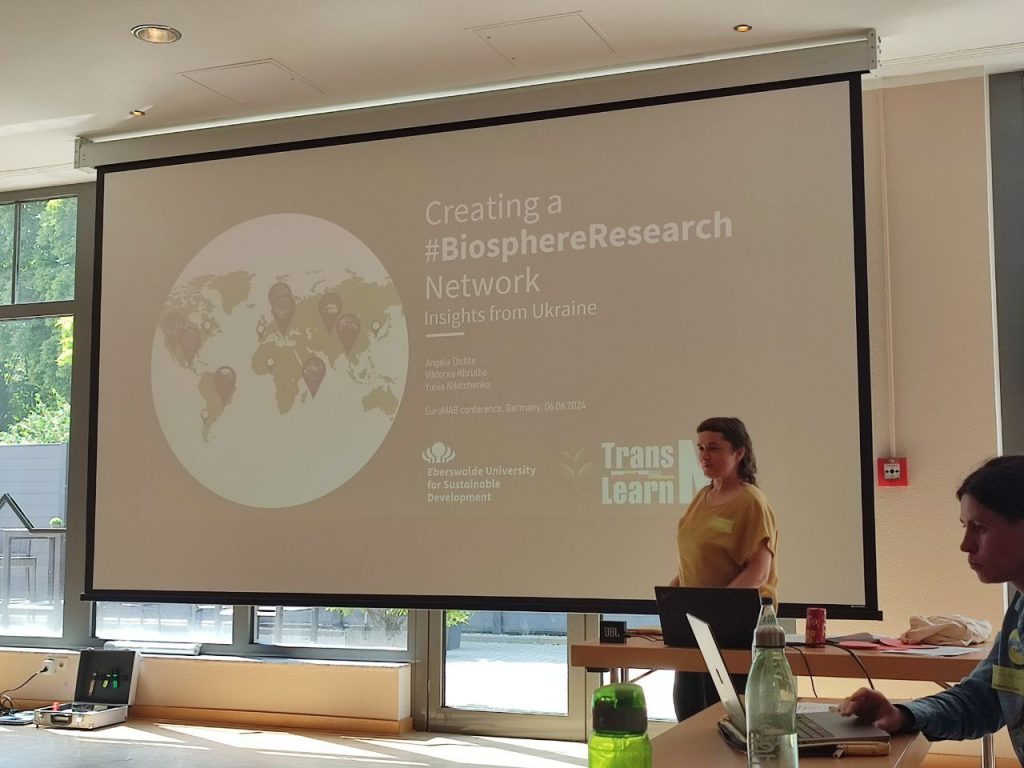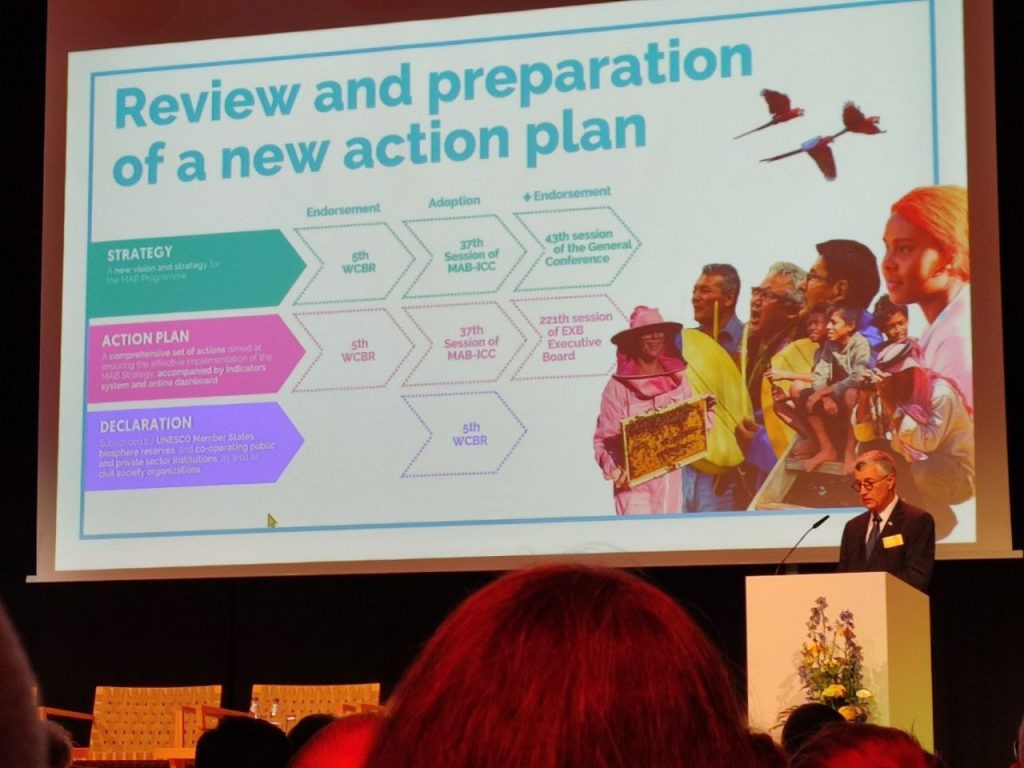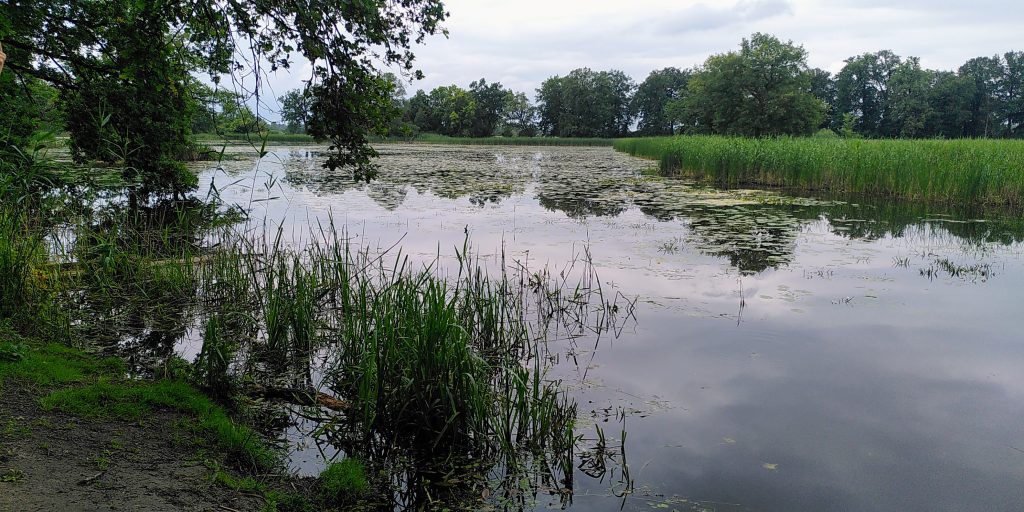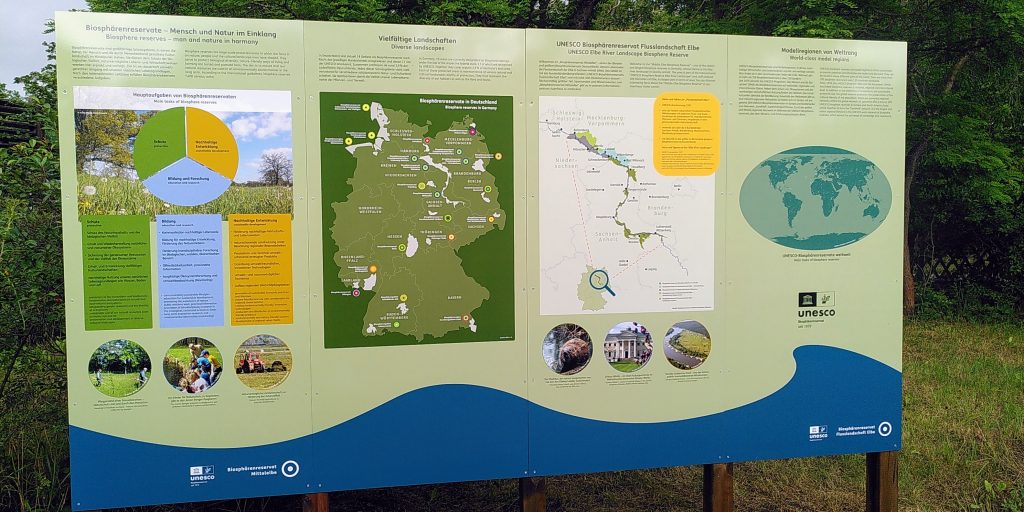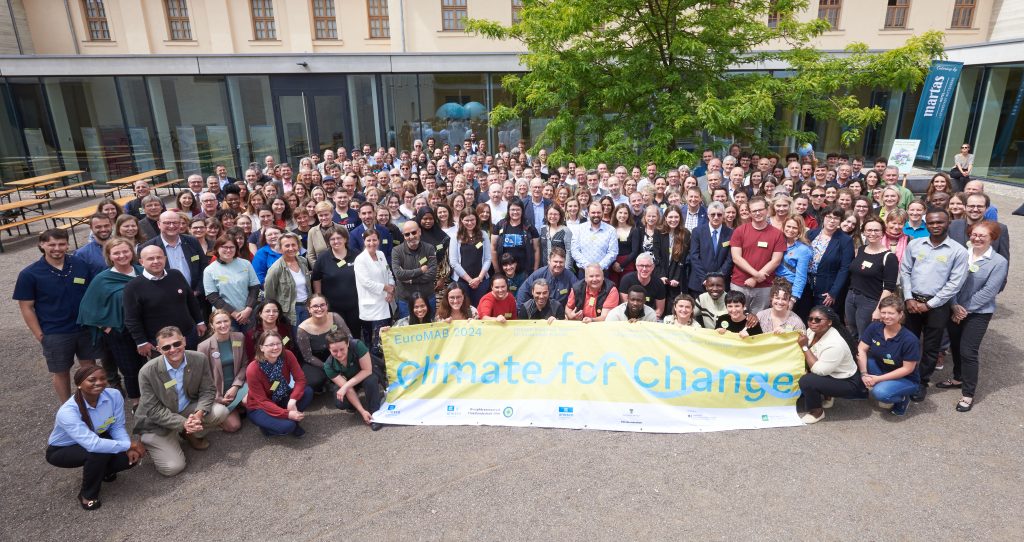A team of the Biosphere Research working group participated and contributed to this year’s EuroMAB conference from 3-7 June 2024 in Germany.
This year, the bi-annual conference of the Network of European UNESCO Biosphere Reserves (EuroMAB) took place in Lutherstadt Wittenberg, Germany, in the Elbe River Landscape Biosphere Reserve, between 3-7 of June. With more than 250 participants, mainly biosphere reserve’s practitioners, the EuroMAB is the place to learn, exchange and network. The topic of this year’s meeting – Climate for Change – highlights the contribution of biosphere reserves to climate change adaptation/mitigation, but also their transformational potential.
A small team from our TransLearnN project took part in a workshop on developing guidelines for research strategies in biosphere reserves and contributed their experience in setting up a Ukrainian Biosphere Research Network as part of work package 3. We feel very inspired and motivated with many new ideas from and connections with the biosphere reserves community and we want to use this to further develop the Ukrainian network. We are very grateful to the organising team of the German Commission for UNESCO, the Elbe River Landscape Biosphere Reserve, #biospherereservesinstitute and all others, who were involved as well as all participants, who made this such a welcoming and fruitful event.
During the conference, a “Message from EuroMAB2024” to the World Congress of Biosphere Reserves 2025 in China was drafted in a highly participatory and transparent manner to inform the development of a new strategy for biosphere reserves for the next decade.
The 3 main take-aways for us were:
- We need to advocate more for UNESCO Biosphere Reserves on the Ukrainian national level and promote their participation in such events!
- We want to promote and support the creation of a vibrant and powerful Ukrainian #MAByouth network together with Anna Kovbasniuk (LINK!).
- We will emphasise more on a better understanding of what biosphere reserves are and can be: places for experimenting, success but also failure, learning from it, democratic processes, dynamic! cultural heritage & socio-ecological systems, inspirations, laughing, dancing, … it’s about life!
